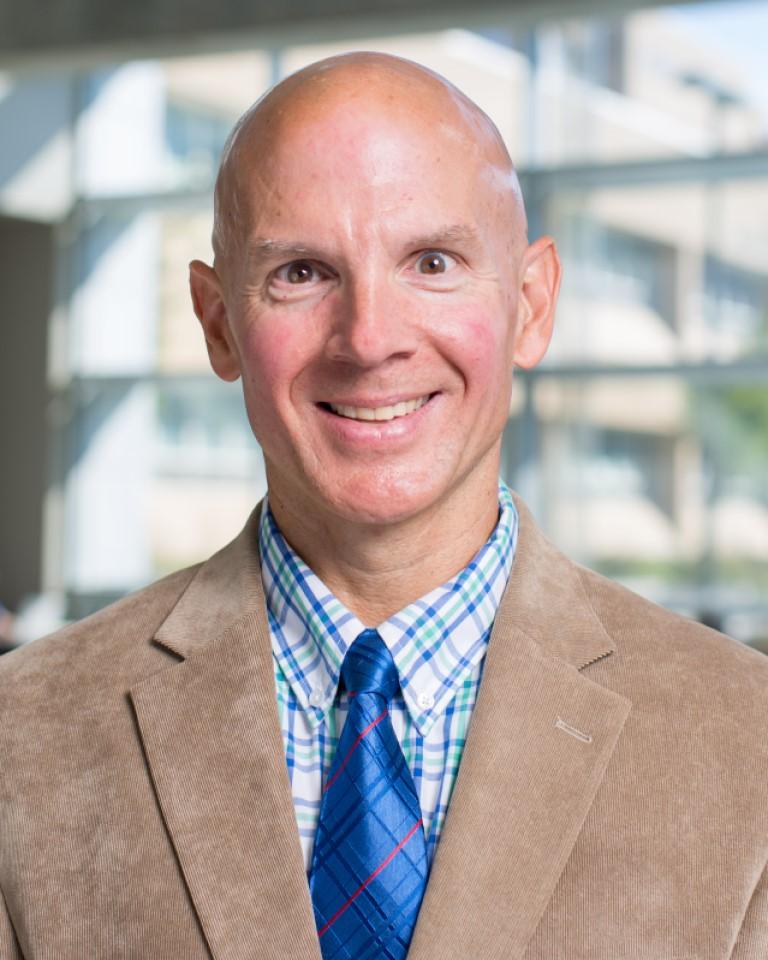Mark Shiflett

MENTOR SPOTLIGHT | APRIL 2021
Department: Chemical and Petroleum Engineering
Describe your research/creative scholarship in a few sentences that we can all understand: My group is focused on developing sustainable processes and products that are energy efficient and safe for the environment. Two examples are Project EARTH and Project SAVE. Project EARTH (Environmentally Applied Research Towards Hydrofluorocarbons) is an NSF funded project with three partner universities, industry, and national labs to develop separation technology for recycling and repurposing high global warming refrigerants. Project SAVE (Silica Adsorbed Vaccine Encapsulation) is focused on storage of vaccine in mesoporous silica at room temperature to eliminate the need for refrigeration.
Q: How did you first get interested in doing research or creative work?
A: I graduated from North Carolina State University with a B.S. in Chemical Engineering in 1989 and joined the DuPont Company in Wilmington, Delaware where I worked in the Fluorochemicals business. My first assignment was to develop a new refrigerant for replacing the chlorofluorocarbon (CFC) refrigerant used in commercial refrigeration equipment (e.g., supermarket display cases, commercial ice machines, transport refrigeration systems). The CFC refrigerants were linked to the depletion of the Earth’s ozone layer and were being phased out under the Montreal Protocol agreement signed in 1987 and now ratified by 197 countries. This was a major challenge and tremendous opportunity for me as a chemical engineer to invent a new product. Ultimately, my team developed three new hydrofluorocarbon (HFC) refrigerant mixtures (e.g. R-404A, R-402B, R-407C) that were commercialized and are sold globally. This experience led me to return to graduate school at the University of Delaware to obtain a M.S. and Ph.D. in Chemical Engineering and I continued working at DuPont in Research and Development until I retired in 2016 to join the University of Kansas. The result of the new HFC refrigerants has led to the “healing” of the Earth’s ozone layer and proof that global challenges can be solved.
Q: What do students in your discipline learn by doing research that they wouldn’t learn by just taking classes?
A: Our graduate and undergraduate students learn how to measure thermophysical properties, apply chemical engineering principles such as thermodynamics, kinetics, and transport to “real-life” engineering challenges, invent new processes and products, and develop their communication and leadership skills working in a diverse and inclusive group environment.
Q: What do you find to be the most exciting part of doing research or creative work? What makes this line of work meaningful and interesting to you?
A: The most exciting part about leading a research group is developing students (both graduate and undergraduate) along with post-doctoral researchers to become the next-generation of inventors and leaders in their field. They are our future and will have to solve the grand challenges our society faces. Examples such as sustainable energy, clean water, accessible food, curing diseases, and slowing climate change are just a few of the challenges they will have to solve.
Q: What advice do you have for undergraduates interested in doing research in your field?
A: The University of Kansas offers a tremendous number of opportunities to get involved in research. Read faculty websites and find a research topic of interest to you. Contact the professor and setup a meeting to discuss opportunities they might have to work with their group. Many universities also offer NSF funded Research Experiences for Undergraduates (REU) programs for students to get involved in research during the summer. Work hard and seek out opportunities to do research.
Q: For many students, doing research or a larger creative project is the first time they have done work that routinely involves setbacks and the need to troubleshoot problems. Can you tell us about a time that your research didn’t go as expected? Or about any tricks or habits that you’ve developed to help you stay resilient in the face of obstacles?
A: Several projects I worked on at DuPont were not commercialized for a number of reasons (technical issues, market did not develop as expected, business environment changed, etc.). I learned that you have to adapt and be willing to change and go in new directions. This sounds easy when you are young, but gets more difficult as you grow older. You tend to hold on to what you know and learning new fields and developing new skills is hard work. Transitioning from industry to academia has been a tremendous amount of work, but also one of the most rewarding aspects of my career. I only wish I had started sooner!
Q: How do you spend your time outside of work?
A: My wife and I like to travel and spend time with our family and friends in Arizona, North Carolina, Virginia, Maryland, and Delaware. I enjoy running in the early mornings with my wife, riding my bike on country roads, and swimming with my friends. My wife and I also enjoy spending time with our two cats (Astra and Luna).